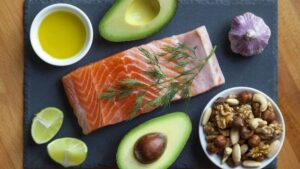Did you know how deep the connection between food and mood really is? According to experts, there’s more than meets the eye, and you should start thinking twice about what food makes you sad and sluggish.
All of that has a name, and it goes by nutritional psychiatry, and as complicated and odd as it might sound, things are really simple in fact: you eat certain foods and find your happiness.
Here is what you need to know.
Nutritional Psychiatry 101
Starting from the idea that what we eat influences our mood, nutritional psychiatrists (not your usual psychiatrists) include food into their overall therapy plans. How cool is that?
This type of nutrition focuses only on some nutrient-filled foods, including those packed with minerals, vitamins, fiber, pro-and prebiotics, antioxidants, and protein. The so-called “empty foods” are totally excluded (yes, sugar, too). The reason?
Specialists explain that following a nutrient-filled diet plan can reduce brain inflammation, which is a severe condition, control dopamine and serotonin, and boost positive moods. Impressive enough?
Well, first, you should know that any dietary changes must be discussed with a specialist. So, you better check up with your doctor about what’s best for you.
What Should You Eat to Feel Better?

You should know that good mental health will always depend on a well-nourished brain. That doesn’t mean that “well-nourished” is perfect. Remember that stressing about what you eat is no good at all.
However, there are some ways you can support a healthy food-mood relationship and still go for a hamburger on Friday nights.
Less sugar and processed foods
Drew Ramsey, MD, a practicing clinical psychiatrist, professor, author, and nutritional psychiatrist expert, comes up with the best explanation.
He stated:
“[…] many processed foods combine ’empty’ calories with other chemicals and additives, like dyes, preservatives, fillers, and sugary ingredients; […] ‘makes our brain depressed, anxious, and unfocused.”
Sugar is linked to reduced levels of BDNF, a protein that supports the brain adaption to stress. But, as you probably know, sugar can also cause inflammation, and artificial sweeteners such as saccharin and aspartame are also not the best choice.

More omega-3s, lean protein, and less saturated fats
Omega-3 fatty acids are super healthy because they can highly reduce inflammation in the brain. Lean poultry, beef, and shellfish are also mood booster, being rich in iron.Â
As for less saturated fats, nutritional psychiatrists recommend limiting shortening and margarine.Â
Try more colourful vegetables, leafy greens, and legumes
Foods like bell peppers, berries, lentils, broccoli, citrus, leafy greens, asparagus contain microbiome-healthy fiber and mood-boosting minerals and vitamins.Â












Leave a Reply